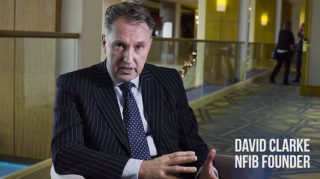Elizabeth, was tricked into giving a whopping £1.6m to a gang of fraudsters who targeted her through an online dating website. She missed hundreds of warning signs in emails and conversations that indicated she was talking to a Casanova con man.
Elizabeth is a shrewd and successful businesswoman and a mum and not a naïve person. However, she is just one of the millions of people who are duped online every month by cruel criminals who aren’t very clever but make use of every form of online technology, from email, Facebook and Linked-in, to Dating Sites, Whats App and WeChat to target victims, build their trust then squeeze them for every last penny they have.
It would be easy to try and point the finger of blame at the Banks that transfer money from victims to fraudsters or worse still, blame the victim for falling for the fraudsters advances. Whilst banks, businesses and individuals all have a duty to fight crime and could do more, there is a vital, growing need for technology to protect citizens.
“Why haven’t we developed simple technology based on AI, especially when a fraud is so easy to spot in email and other online communication” asks David Clarke, the former Head of the City of London Police Fraud Squad and Director of the NFIB.
Order Pizza and Spot a Ponzi
He is frustrated that too little is being done despite the rapid growth in the Fintech sector and machine learning saying, “We have thousands of Fintech start-ups in the UK and USA alone and have made great leaps in AI, sentiment analysis and predictive text and the like. This can be used to tell you where to order a pizza when you type a message about having lunch, why isn’t this tech adapted to warn you that the multimillion dollar windfall you’re entitled to, is most likely a fraud?”
Talking about existing online tools he said, “There are lots of free databases where you can check to see if a story adds up, like checking a photo on Google images and cross-checking names you’ve been given against the official information held on Companies House but this is a manual task and we’re asking potential victims to become Sherlock Holmes. All these search tools should available in one place and not require days of manual labour”.
Addressing delegates at the Nordic Cloud and Mobile Security Forum in Copenhagen in 2015, an event event organised in partnership with the British Government, David spelled out the enormous fraud risk that citizens face when communicating online and called on tech entrepreneurs to rise to the challenge. Interviewed at the event, he warned of the increase in the use of social engineering online and the need for tech tools to help protect people.
Watch the interview:
Video credit: LEADR TV
Elizabeth turned to David for help when she finally became suspicious about an investment she was tricked into making. The correspondence she received had all the hallmarks of a fraud and even used lines taken from a book on dating.
He assisted her deal with the incident and report the matter to the police, the largest loss suffered by an individual to be reported to Action Fraud. Her case was investigated and resulted in several arrests and successful prosecutions. However, only a tiny amount of Elizabeth’s money was recovered, the remainder going off to fund the luxury lifestyles of heartless criminals.
Fraud and cyber-crime now accounts for around half of all crime that is reported in the United Kingdom and that may be just the tip of the iceberg across the world. Victims are often reluctant to report fraud because they think they’ve been stupid. David says don’t be embarrassed, report it.

